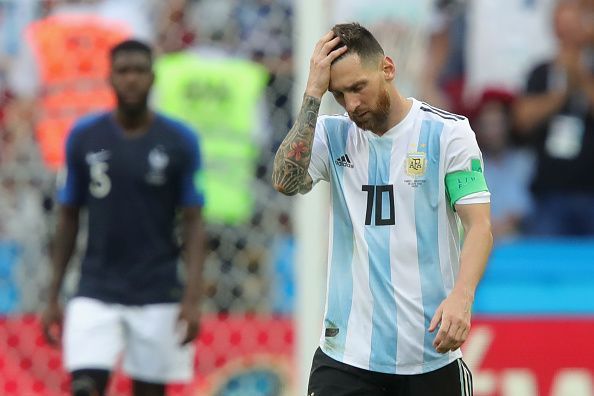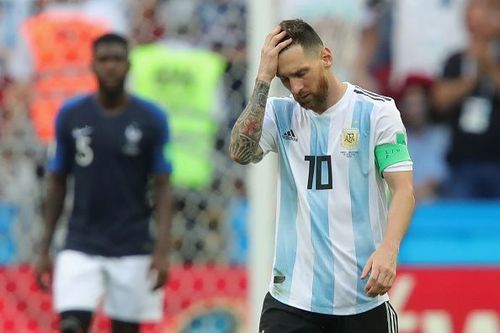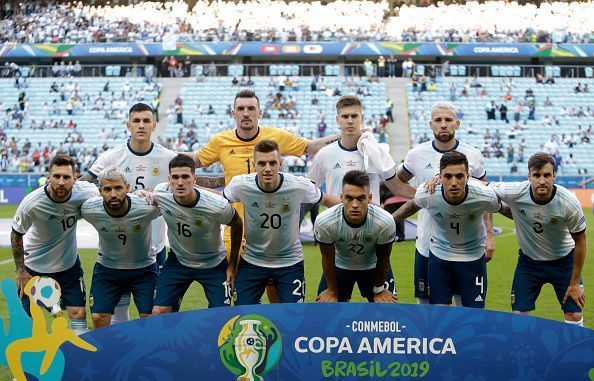
3 reasons why Lionel Messi struggles with Argentina

Lionel Messi is unarguably one of the greatest players in history - his performances for Barcelona guarantees that. However, a major anomaly throughout the 31-year-old's illustrious career has been that he has not quite matched his club form on the international scene.
Many might point to the fact that with 68 goals from 133 matches, the Rosario native is Argentina's all-time leading goalscorer as vindication for his national team form, however, this is just a surface evaluation and a deeper incursion shows just how poor (by his standards) he has been for Los Albiceleste.
For starters, his goal ratio of 0.51 means that he scores a goal for Argentina on average of one every two matches and this falls some way beneath 0.85 goals/match he has managed in his Barcelona career.
He has scored just six goals from 19 World Cup matches and is yet to win a major trophy with Argentina, losing four finals in his time with the national team and this goes in stark contrast to his trophy-laden stay at Barcelona which has seen him win 34 major trophies.
A common question among fans and pundits alike is why Lionel Messi has not been able to transfer his club form with Barcelona onto the international scene for Argentina and while there might not be a holistic reason as to why this is so, there are a number of plausible reasons why Messi underperforms in national colors.
In this piece, we shall be highlighting three reasons why Lionel Messi struggles with Argentina.
#3 Lower quality of players

A common rhetoric in football debates about why Messi struggles with the national team is that Argentina has been blessed with quality players throughout his time with Los Albiceleste and while this might not be entirely false, it is too generic and does not really portray the full picture.
A holistic look at the Argentine squads over the years that Messi has been involved in shows a lopsided abundance of quality in just one department - attack, at the detriment of every other position.
While the likes of Higuain, Aguero, Icardi, Tevez, Diego Milito, and Di Maria but to name a few can all claim to be among the best forwards of their generation, there was not much quality support elsewhere.
Argentina have not really been famed for producing top-notch goalkeepers overtime, but it says something that their first choice goaltender for the last decade finds himself playing second fiddle at Manchester United.
This goes in contrast with what is obtainable at other Grade A national teams such as England, Germany, France, Belgium and even Brazil (with two) who have their first choice goalkeepers as sure starters at the biggest clubs in the world.
In defense, apart from Walter Samuel and Javier Zanetti, Argentina have arguably not produced a world-class defender for the last 15 years, while they had only two midfielders of note in the same timeframe; Juan Roman Riquelme and Javier Mascherano (who spent most of his time at club level playing as a center-back).
Again when you look at the national teams of Belgium, France, Germany, Spain, Brazil but to name a few, you find out that true talent and ability is spread out across the entire team and not just concentrated in one sector.
Lionel Messi has undoubtedly suffered from this lack of true quality across the board in the Argentine team and the current crop at the ongoing Copa America is probably the worst of the lot.
At Barcelona, Messi has able support across all departments so it serves as a no-brainer that he would do well at club level but seeing as the reverse is the case with Argentina, his underperformance is somewhat understandable.